Pentagon Papers: How a Document Changed Politics
By Udit Kaushik
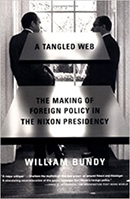
James Goodale
Goodale was the former head manager and lawyer of the New York Times. He was established by Lord, Lord and Good Day. He is mostly known for his demolishing of the president and the reestablishment of the Time’s legacy. He is a powerful figure in the American press and is now known as the “protector of the press.”
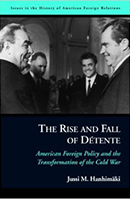
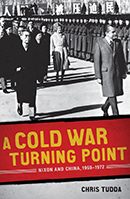
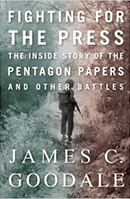
The release of the Pentagon Papers was the first visible infringement of American rights and the reaction was, simply put, visible. The “accidental” printing of these top secret papers led many citizens to question the true extent of their first amendment rights. Soon, this controversial issue went past the visible break in the secrecy of the government; it spanned into a war between the president and the American press. The events that followed after the Pentagon Papers were all influenced by the press’ attempts at defending its rights and thoroughly destroying Nixon and his cabinet. Goodale and the New York Times became the leaders of this war and demonstrated that the American Press represents the use of the first amendment and the freedom of the American people. In fact, Goodale’s book Fighting for the Press: The Inside Story of the Pentagon Papers and Other Battles clearly depicts how the Pentagon Papers and the battles between the American press and Nixon completely changes the face of American politics and the guaranteed rights of the American people.
James C. Goodale begins his book by setting the plot on the day the Pentagon Papers were published. He describes the publishing as “expecting all hell to break loose” but it was surprisingly calm because Nixon could not pay heed to the news on the same day his daughter was getting married. The day after, however, Nixon received the news of the Pentagon Papers and he unleashes full-fledged war. Before moving on, Goodale takes a moment to introduce the editors and writers who helped him fight Nixon. After the introduction of the characters, Goodale enters a flashback where he first describes how he found out about the papers and how the famous figures at the Gridiron, a banquet in Washington, hinted towards these new documents. Goodale stated that he knew was called for a reason but he did not know he would be “let in on a secret and would have to keep it secret. I did not know exactly what the documents were, but I was supposed to figure out a way to publish them.” Next, he goes back to when the Pentagon Papers were fist written and how Nixon would ultimately hide them in order to keep a strong hand over the American public. He called the papers “Pumpkin Papers” because Chambers, an ex-communist spy, took the papers from Hiss (had communist ideals before World War II) and hid them in a pumpkin. Goodale followed Hiss’ trial very intently because it represented the reality that many of his friends would have to face if they were put on trial. The audacity of the trial established “my [Goodale’s] profound hate for Nixon and Senator Joseph McCarthy.” He continues by describing how Vice President Agnew inevitably became known as Nixon’s attack dog because he led all the attacks against the press. Not surprisingly, it was Agnew who would be the first to be ousted out of office. After, Goodale describes how he first entered into the world of legal press cases and how he gained experience through Caldwell v. U.S. where the New York Times writer Earl Caldwell is prosecuted because he was able to talk to the Black Panthers. Goodale rushes the story to where Nixon and his cabinet had just started to place restraints on the American press and how they demanded each journalist submit their sources to them in order to be “scanned.” This was just a ploy for Nixon to find who was against him and how he could extend his black list. Goodale transition to the next part of his book by stating “the New York Times will fight.”
The decision of the New York Times for fighting against the American government’s censorship led other newspaper companies to mobilize against the restriction placed upon them. Goodale was very disappointed, however, when the newspapers turned out to take far too drastic measures and become radical. None the less, Goodale takes the extreme point of views held by the newspaper as helpful, but “an overall thorn in the side.” He continues by explaining how he gathered all of the evidence he used in the case and how it changed the tide of “war.” The evidence that he collected and how he used it is paramount to the establishment of the case because it allowed him to create key steps that could be done in the future. The publishing of the Pentagon Papers against the restriction placed by the American government is extremely important because this sort of case has never occurred before. Goodale formed a path for the American press to follow upon if circumstances reach as far as they did in the 1970’s. The case is ultimately a legacy for Goodale and the New York Times because they change the face of legal action against the press and politics overall. The Espionage Act was the key evidence and it held that “a criminal law that punished people after the crime was committed” because alleged “reds” were convicted many years after they held communist ideals. Goodale was able to find a loophole in the Espionage Act and proved that it was not only constricting the rights of the American people but was also tarnishing the reputation many had. In fact, one of the many reasons Goodale hated the 1970’s was because of how easy it was to falsely accuse a person of being a “red” just as Nixon and McCarthy had done.
With enough evidence from both the Pentagon Papers and the Espionage Act, Goodale was able to establish a fairly strong case against the censorship of the American press. Although Goodale and his team had created a sound argument of what the drawbacks or censorship obstructed, there was still much concern over the fact that some Justices might see otherwise. In fact, Goodale believed that at least two of the Justices would oppose him since they had been appointed by Nixon himself. The results of the case were surprising because the justices had sided with the press and changed the face of the game. One of the two Justices that were appointed by Nixon supported the press completely and the other supported Nixon but with a leniency towards the American press. This did not matter to Goodale in the beginning because he was able to defeat Nixon 6-3. Goodale was especially elated because the New York Times had not published anything for about 9 days. Celebration had to end, however, when Chief Justice White stated that “criminal action was possible against us [New York Times] and the Post.” Most justices followed what the prosecutor Stewart had stated since it was the most sound and safe decision. Others found that the extreme decision against government control and restricted printing was the best option. Although he was disappointed by the hearing, Goodale took advantage of this and started publishing once again, bringing the legacy back to the Times and having many more readers after the victory against the U.S. government. Finally, “the Nixon administration had been bruised by the Pentagon Papers.”
After Nixon finally lost to the New York Times, he began to enter the defensive mode that he never thought he would hold. His method of blacklisting soon began to get bigger and each person was monitored extremely closely. Nixon and his secret service began infringing the privacy of people by conducting raids without their presence. This meant that Nixon was not only breaking into the private lives of these people but also unduly searching them and hiding key sources away from them in order to stop any news that could go against the government from occurring. Nixon’s popularity suddenly crashed and this led to more and more people to lean towards impeachment. The New York Times and Goodale did not particularly have a take upon this situation but it was clearly understood that they had not intentions of defending Nixon. At this point in the book, Goodale skips to present times where Obama is facing the current issue of stepping into legal affairs. Goodale describes how “Obama has just entered into the world of national security and is already, in a sense, jeopardizing it.” Goodale ends the book with a short comparison of how Obama could become the present Nixon.
Goodale’s thesis in the book is to demonstrate how the Pentagon Papers ultimately have drastic effects today and how history could in fact repeat itself. The most important part of the Goodale’s argument is how the New York Times paved the way for future cases of censorship by the government. At Goodale’s time, there was no predecessor to the trial of the Pentagon Papers. Everything that could be discerned must have been done at the time and must have been taken from cases prior and not existing at the same time. The second most important point Goodale makes is how the New York Times gained its reputation of being a renowned newspaper. The Times was already critically acclaimed but “Nixon and his attack dog Agnew demoralized it [New York Times]”. The establishment of superiority over the President ultimately brought the reputation back up and lead to a stronger belief in the strength of the American Press. Finally, Goodale’s final point is how history has ultimately changed for perhaps the good of the country. Censorship is no longer an issue and this is clearly because the New York Times defeated Nixon at his own game. Goodale and the publishing of the Pentagon Papers are perhaps the most important event in the history of the American press because of this.
Although it may not seem fair to do so, Goodale and his novel have to be categorized as biased. Though Goodale has come far from the initial contempt he once held for Nixon and the Republican part, Goodale still has the innate anger in his judgement of Nixon. Goodale’s bias and anger is clearly visible in the beginning of the novel when he states that “my [Goodale’s] profound hate for Nixon and Senator Joseph McCarthy” clearly distorts his view. Goodale is mad and angry about how the Nixon cabinet has treated him, his private life, and his occupation. It was extremely clear that Nixon voice his contempt of this young underdog. This is specifically seen when Nixon states “subpoena all these bastards and bring the case… Destroy the Times.” Also, people within the Times, such as the assistant crew and Abe, pushed Goodale to take headstrong actions that were clearly a bit too far. The number of years since the event, however, has simplified the hate to a very small degree and it is barely distorting Goodale in this book.
Professional reviewers see Goodale’s book as a beacon shedding light upon the issue as time has gone through. Goodale has created a strong reputation for himself and Times and demonstrates the power of the American press. In the critical review of Gutterman, for example, he goes through each and every event in Goodale’s novel with a particular view of the present day. One of the main issues Gutterman has with the novel, however, is that “Goodale believes that Obama is “worse than Bush’ in using criminal laws to plug leaks and asking reporters to disclose confidential sources.” In a sense, Gutterman goes against Goodale and tries to alleviate the dirt that has been placed on Nixon by portraying that Goodale is “overly critical in parts of his novel.” Fledstein, on the other hand, hold Goodale as the pinnacle of the American press. Fledstein has nothing but respect for Goodale and this can be seen by his review. He describes Goodale’s actions as an “unprecedented act of prior restraint” that was necessary to shed light upon the issue. All in all, Gutterman sides with Goodale and sees Nixon as a dogmatic dictator rather than a president who misused his powers.
Goodale, no matter what others state about his bias, does a really good job of writing a memoir on what occurred during the time that the New York Times was prosecuted. He explicitly describes how the burden was placed upon him and how he had to rise and bring the Times back in power. Goodale’s bias is understandable and must not looked too far into because Goodale protects Nixon in some aspects. Although it is not clearly seen, Goodale does not directly refer to Nixon as a cruel dictator. In fact, Goodale probably never held that view in the first place. Critical reviewers, however, see otherwise and place Goodale upon a sort of diminishing pedestal that should be removed immediately. Many people think that since he was the main competitor against Nixon and that he was the victor, it only makes sense that Goodale’s views are distorted. This is, however, not the case and Goodale actually downplays his achievements in more places than not, as seen by his victory of the Pentagon Papers when he states “we had won but we had lost much in the process.”
All in all, Goodale serves to establish the bigger picture: the 1970’s were a time of great upheaval. The release of government papers are not only an important detailed view that the American people should see, but also a case that led to a better first amendment. Nixon and his cabinet broke the basic rights of many American citizens by not only placing them under a black list, but “also searching their private possessions without a warrant or their consent,” which meant that Nixon was misusing he special powers. All of these added to the fact that Nixon was highly paranoid of communist opposition led to the break in the basic rights of the American press and it was only clear that he should be impeached. Nixon’s actions and the defense used by the American people clearly demonstrates that the 1970’s is described as an era of great political upheaval. All in all, Goodale’s book sheds new light that was perhaps needed upon the issue and clearly addresses the fact that the 1970’s were filled with turmoil.
Goodale has done a really great job at shedding new light upon an issue that has been hushed up for a very long time. He has come up with many different reasons why the defense used by the press during this time was only understandable and clearly demonstrates why the Pentagon Papers have created a new political face. Goodale has paved the way for future censorship cases and has warned society that “history will repeat itself.”
Footnotes:
- Goodale, James C. Fighting for the Press: The Inside Story of the Pentagon Papers and Other Battles: 2013 Cunny Journalism Press. 2
- Goodale, James C. Fighting for the Press: The Inside Story of the Pentagon Papers and Other Battles: 2013 Cunny Journalism Press. 6
- Goodale, James C. Fighting for the Press: The Inside Story of the Pentagon Papers and Other Battles: 2013 Cunny Journalism Press. 14
- Goodale, James C. Fighting for the Press: The Inside Story of the Pentagon Papers and Other Battles: 2013 Cunny Journalism Press. 28
- Goodale, James C. Fighting for the Press: The Inside Story of the Pentagon Papers and Other Battles: 2013 Cunny Journalism Press. 31
- Goodale, James C. Fighting for the Press: The Inside Story of the Pentagon Papers and Other Battles: 2013 Cunny Journalism Press. 42
- Goodale, James C. Fighting for the Press: The Inside Story of the Pentagon Papers and Other Battles: 2013 Cunny Journalism Press. 56
- Goodale, James C. Fighting for the Press: The Inside Story of the Pentagon Papers and Other Battles: 2013 Cunny Journalism Press. 67
- Gutterman, Roy S. Journalism & Mass Communication Quaterly 90(4): 2013. 804
- Felstein Mark. American Journalism: 2013 Routledge: Taylor & Francis Group. 535
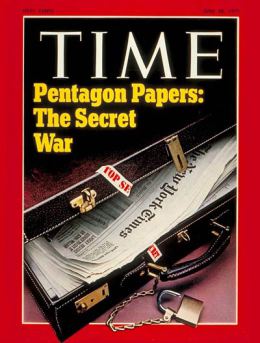
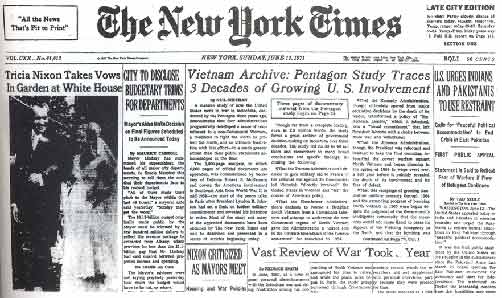
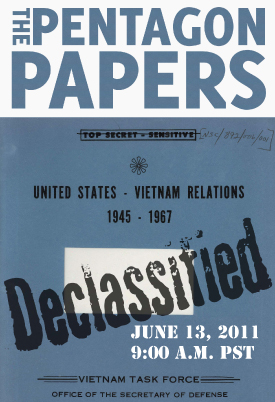
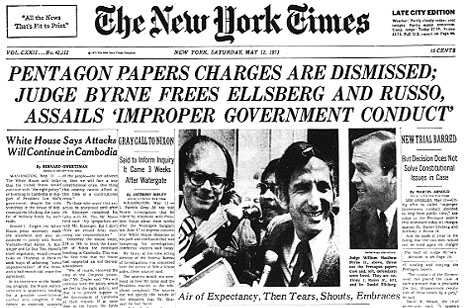
1 - 4
<
>